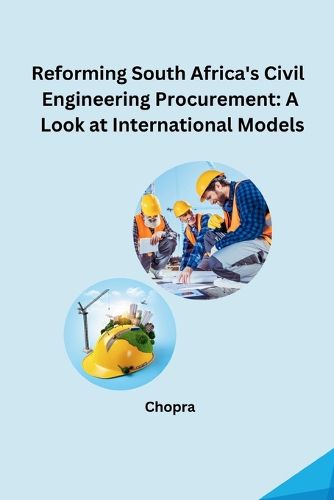Readings Newsletter
Become a Readings Member to make your shopping experience even easier.
Sign in or sign up for free!
You’re not far away from qualifying for FREE standard shipping within Australia
You’ve qualified for FREE standard shipping within Australia
The cart is loading…






South Africa's civil engineering industry faces a challenge: procurement processes that prioritize the lowest bidder over qualified firms. Looking abroad, successful models offer valuable insights for reform. Many countries utilize a qualifications-based selection (QBS) approach. Here, experience, expertise, and past performance determine a shortlist of qualified firms. This ensures a pool of capable candidates, not just the cheapest. Another option is a two-stage selection process. Firms initially compete based on qualifications, followed by cost proposals. This balances value for money with the expertise needed for a successful project. Some countries embrace a "best value" approach. This factors in experience, innovation, safety record, and social responsibility alongside cost. This holistic assessment identifies firms best suited to deliver the project's goals. Implementing these models requires a fair and transparent evaluation process with clear criteria for each selection factor. By learning from international models, South Africa can reform its civil engineering procurement. Shifting the focus from just price to qualifications and value will ensure the selection of the best firms to deliver high-quality, sustainable infrastructure projects.
$9.00 standard shipping within Australia
FREE standard shipping within Australia for orders over $100.00
Express & International shipping calculated at checkout
South Africa's civil engineering industry faces a challenge: procurement processes that prioritize the lowest bidder over qualified firms. Looking abroad, successful models offer valuable insights for reform. Many countries utilize a qualifications-based selection (QBS) approach. Here, experience, expertise, and past performance determine a shortlist of qualified firms. This ensures a pool of capable candidates, not just the cheapest. Another option is a two-stage selection process. Firms initially compete based on qualifications, followed by cost proposals. This balances value for money with the expertise needed for a successful project. Some countries embrace a "best value" approach. This factors in experience, innovation, safety record, and social responsibility alongside cost. This holistic assessment identifies firms best suited to deliver the project's goals. Implementing these models requires a fair and transparent evaluation process with clear criteria for each selection factor. By learning from international models, South Africa can reform its civil engineering procurement. Shifting the focus from just price to qualifications and value will ensure the selection of the best firms to deliver high-quality, sustainable infrastructure projects.